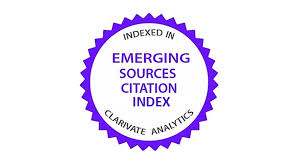Historical Epistemology and Meta-Epistemology
Different labels, shared interests
DOI:
https://doi.org/10.18270/rcfc.v23i46.3733Keywords:
historical epistemology, historical meta-epistemology, historical ontology, Ian Hacking, Lorraine Daston, Michel FoucaultAbstract
Lorraine Daston has underscored the influence that Ian Hacking's The Emergence of Probability has had on her intellectual trajectory and on her choice of the label historical epistemology to describe her work. Hacking, for his part, has responded to these remarks that, firstly, Daston and her colleagues do not do epistemology, but rather study epistemological concepts as objects that evolve and mutate. Secondly, that not only his work on probability is not historical epistemology but also it is what he calls historical meta-epistemology or better yet, historical ontology. In this paper, I analyze how Daston and Hacking understand the type of research that they respectively call historical epistemology and historical meta-epistemology, and I explore their convergences and divergences in order to establish possible shared relations, interests and antecedents. Finally, I argue that Hacking's work can be visualized as a result of investigations of the type that characterize historical epistemology, as a consequence of his interest, encouraged by Michel Foucault´s reading, in the analysis of the historical conditions of possibility for the emergence of scientific concepts and objects.
Downloads
References
Castro, Julio Alejandro. “Estilos de razonamiento, prácticas científicas y epistemología histórica: una propuesta de articulación entre la Historia y la Filosofía de la Ciencia”. Revista Colombiana de Filosofía de la Ciencia 18.37 (2018):113-148. <https://doi.org/10.18270/rcfc.v18i37.2572>
Daston, Lorraine. “Historical Epistemology”. Questions of Evidence. Proof, Practice and Persuasion across the Discipline. Eds. James K. Chandler, Arnold Davidson y Harry Harootunian. Chicago: Chicago University, 1994. 282- 289.
______. Biographies of Scientific Objects. Chicago: Chicago University, 2000.
______. “On Scientific Observation”. Isis 99.1 (2008): 97-110. <https://doi.org/10.1086/587535>
______. “Science Studies and the History of Science”. Critical Inquiry 35.4 (2009): 798-813. <https://doi.org/10.1086/599584>
______. “Human Nature is a Garden”. Interdisciplinary Science Reviews 35.3-4 (2010): 215-230. <https://doi.org/10.1179/030801810X12772143409928>
______. Breve historia de la atención científica. Trad. Eduardo González. México: La Cifra Editorial, 2012.
______. Biografías de objetos científicos. Trad. Eduardo González. México: La Cifra Editorial, 2014.
______. Historicidade e objetividade. São Paulo: Editora LiberArs, 2017.
______. “Observar el conocimiento: el seminario”. Lorraine Daston en Montevideo. Comps. Juan Queijo e Isabel Wschebor. Montevideo: AGU, 2020. 35-40.
Daston, Lorraine y Galison, Peter. Objectivity. New York: Zone Books, 2007.
______. “Response: “Objectivity” and Its Critics”. Victorian Studies 50.4 (2008): 666-677.
Deffke, Uta. “The Observer”. Max Planck Research, Culture & Society. Personal Portrait (2012): 87-92.
Feest, Uljana y Sturm, Thomas. “What (Good) is Historical Epistemology? Editors’ Introduction”. Erkenntnis 75 (2011): 285-302. <https://doi.org/10.1007/s10670-011-9345-4>
Foucault, Michel. Power/Knowledge: Selected Interviews & Other Writings 1972-1977. New York: Pantheon Books, 1980.
______. Sobre la Ilustración. Madrid: Tecnos, 2003.
Fragio, Alberto. De Davos a Cerissy-La-Salle: la Epistemología Histórica en el contexto europeo. Tesis de Doctorado. Madrid: Universidad Autónoma de Madrid, 2007. <http://hdl.handle.net/10261/11055>
Gross, Jack. “Historicizing the Self-Evident: An Interview with Lorraine Daston”. Los Ángeles Review of Books, January 25 2020. ˂https://lareviewofbooks.org/article/historicizing-the-self-evident-an-interview-with-lorraine-daston/˃
Guillaumin, Godfrey. El surgimiento de la noción de evidencia. Un estudio de epistemología histórica sobre la idea de evidencia científica. México: UNAM, 2005.
Hacking, Ian. The Emergence of Probability. A Philosophical Study of Early Ideas about Probability, Induction and Statistical Inference. Cambridge: Cambridge University, 1975.
______. “Five Parables”. Philosophy in History. Eds. Richard Rorty, Jerome B. Scheewind and Quentin Skinner. Cambridge: Cambridge University, 1984. 103-124. <https://doi.org/10.1017/CBO9780511625534.008>
______. “La arqueología de Michel Foucault”. Foucault. Comp. David Couzens Hoy. Buenos Aires: Nueva Visión, 1988. 35-50.
______. The Taming of Chance. Cambridge: Cambridge University, 1990.
______. Rewriting the Soul. Multiple Personality and the Sciences of Memory. Princeton: Princeton University, 1995.
______. Mad Travelers. Reflections on the Reality of Transient Mental Illnesses. Virginia: University of Virginia, 1998.
______. “Historical Meta-Epistemology”. Wahrheit und Geschichte. Ein Kolloquiumzu Ehren des 60. Geburststages von Lorenz Krüger. Göttingen: Vandenhoeck & Ruprecht, 1999. 53-77.
______. Historical Ontology. London: Harvard University, 2002.
______. ¿La construcción social de qué? España: Paidós, 2001.
______. “Let’s Not Talk About Objectivity”. Objectivity in Science. Eds. Flavia Padovani, et ál. Springer Cham, 2015. 19-33. <https://doi.org/10.1007/978-3-319-14349-1_2>
Kusch, Martin. “Hacking’s Historical Epistemology: a Critique of Styles of Reasoning”. Studies in History and Philosophy of Science 41.2 (2010): 158-173. <https://doi.org/10.1016/j.shpsa.2010.03.007>
______. “Reflexivity, Relativism, Microhistory: Three Desiderata for Historical Epistemologies”. Erkenntnis 75.3 (2011): 483-494. <https://www.jstor.org/stable/41476735>
Lecourt, Dominique. L’épistémologie historique de Gaston Bachelard. Paris: Librairie Philosophique Vrin, 1969.
Martínez, María Laura. “The Texture in Ian Hacking’s Work. Michel Foucault as the Guiding Thread of Hacking’s Thinking”. Synthese Library 435. Springer Nature, 2021. <https://doi.org/10.1007/978-3-030-64785-8>
Rheinberger, Hans-Jörg. Toward a History of Epistemic Things. Synthesizing Proteins in the Test Tube. Stanford: Stanford University, 1997.
Sciortino, Luca. “On Ian Hacking’s Notion to Styles of Reasoning”. Erkenntnis 82.2 (2017): 243-264. <https://doi.org/10.1007/s10670-016-9815-9>
Trevor, Michael. (2017). “Ideals and Practices of Rationality- An Interview with Lorraine Daston”. Exchanges: the Warnick Research Journal 4.2 (2017): 173-188. <https://doi.org/10.31273/eirj.v4i2.157>
Vagelli, Matteo. “Ian Hacking. The Philosopher of the Present”. Iride 27.72 (2014): 239- 269. <https://doi.org/10.1414/77453>

Downloads
Published
How to Cite
Issue
Section
License

This work is licensed under a Creative Commons Attribution-NonCommercial-NoDerivatives 4.0 International License.

| Article metrics | |
|---|---|
| Abstract views | |
| Galley vies | |
| PDF Views | |
| HTML views | |
| Other views | |










